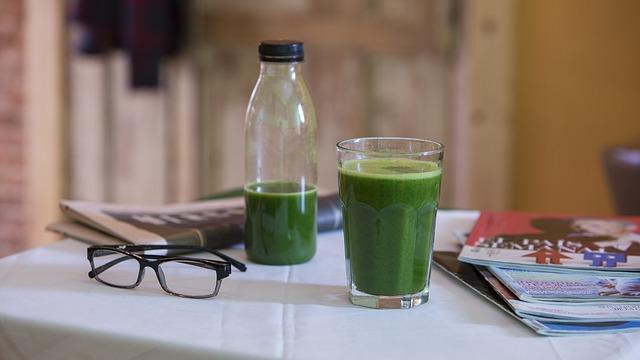In the bustling tapestry of modern life, where the demands of work, family, and personal ambitions intertwine, maintaining a balanced diet often feels like a distant aspiration. Yet, nestled within the myriad choices we make daily, lies the simple yet profound key to long-term wellness. Imagine a journey where vibrant fruits and verdant vegetables dance alongside whole grains and lean proteins, crafting a symphony of nourishment that fuels both body and mind. In this article, we embark on a culinary exploration, unveiling practical and insightful tips to help you embrace a balanced diet. Whether you’re a seasoned health enthusiast or just beginning to navigate the world of nutrition, these strategies are designed to seamlessly integrate into your lifestyle, guiding you towards a future of vitality and well-being.
Fueling Your Body with Nutrient-Dense Foods
Incorporating nutrient-dense foods into your daily meals is a cornerstone of maintaining long-term wellness. These foods are packed with essential vitamins, minerals, and antioxidants, offering more nutritional value per calorie than their processed counterparts. To enhance your diet with these powerhouse ingredients, consider focusing on whole, minimally processed options that support optimal health.
- Leafy Greens: Spinach, kale, and Swiss chard are rich in vitamins A, C, and K, as well as iron and calcium.
- Colorful Vegetables: Bell peppers, carrots, and sweet potatoes are loaded with beta-carotene and fiber.
- Fruits: Berries, oranges, and apples provide antioxidants and natural sugars for energy.
- Whole Grains: Quinoa, brown rice, and oats are excellent sources of complex carbohydrates and fiber.
- Healthy Fats: Avocados, nuts, and olive oil support heart health and aid in nutrient absorption.
By making these foods a regular part of your diet, you not only fuel your body with essential nutrients but also lay the foundation for a healthier future. Remember, the key to long-term wellness is balance, variety, and moderation.

Mastering the Art of Portion Control
Understanding how to manage portion sizes is essential for maintaining a balanced diet without feeling deprived. By learning to gauge appropriate servings, you can enjoy a variety of foods while still aligning with your wellness goals. Start by becoming familiar with standard serving sizes, which can often be surprising when compared to what we typically serve ourselves. This awareness can be a game-changer in making more informed choices.
- Use smaller plates: A simple trick that can help you eat less by making portions appear larger.
- Be mindful of hunger cues: Pay attention to your body’s signals, eating when you’re truly hungry and stopping when you’re satisfied.
- Plan your meals: Preparing meals in advance can prevent overeating and help maintain control over portion sizes.
- Measure and weigh: Occasionally measuring portions can recalibrate your understanding of how much you should be eating.
Adopting these practices not only supports a healthy lifestyle but also nurtures a positive relationship with food. With time, mastering portion control can lead to sustained wellness and greater enjoyment of meals.

Embracing the Power of Hydration
Water is often overlooked in discussions about nutrition, yet it’s a fundamental pillar of a balanced diet and long-term wellness. Our bodies are predominantly composed of water, making hydration crucial for maintaining optimal health. Incorporating adequate hydration into your daily routine can enhance physical performance, improve brain function, and even aid in weight management. Here are a few simple tips to ensure you’re staying hydrated throughout the day:
- Start your day with a glass of water to kickstart your metabolism.
- Carry a reusable water bottle to track your daily intake.
- Incorporate water-rich foods like cucumbers, oranges, and watermelons into your meals.
- Set reminders on your phone to take regular water breaks.
- Opt for herbal teas or infuse your water with fruits for added flavor without extra calories.
By making hydration a priority, you’re not just quenching your thirst but also fortifying your body’s natural processes. Remember, hydration is not just about drinking water; it’s about integrating a fluid-rich diet that supports your lifestyle. Keeping your body well-hydrated is a simple yet powerful way to support your journey toward a balanced diet and sustained wellness.

Navigating the World of Healthy Fats
Understanding the role of fats in our diet is crucial for achieving a well-rounded approach to nutrition. While often misunderstood, fats are essential for supporting cell growth, protecting organs, and producing vital hormones. To integrate healthy fats into your diet, focus on incorporating a variety of sources. Consider these options:
- Avocados: Rich in monounsaturated fats, they help reduce bad cholesterol levels and are versatile in meals.
- Nuts and Seeds: Almonds, walnuts, chia, and flaxseeds are packed with omega-3 fatty acids and fiber.
- Olive Oil: A staple in Mediterranean diets, it’s known for its heart-healthy properties.
- Fatty Fish: Salmon, mackerel, and sardines provide essential omega-3 fatty acids for brain health.
Balance is key. Aim to replace saturated fats found in processed foods with these healthier alternatives. Remember, moderation is important as even healthy fats are calorie-dense. By making mindful choices, you can enjoy the benefits of fats without compromising your wellness goals.
The Way Forward
As we close the chapter on our exploration of balanced diet tips for long-term wellness, it becomes clear that nurturing our bodies is an art as much as it is a science. Just as a painter selects the right hues to create a masterpiece, we too can choose the right nutrients to craft a life of vitality and health. Embrace the vibrant palette of whole foods, savor the symphony of flavors, and listen to the quiet wisdom of your body. Remember, wellness is not a destination but a journey, one where every meal is a step towards harmony. May these insights guide you on a path where nourishment and well-being walk hand in hand, creating a lifelong canvas of health that is uniquely yours.


































